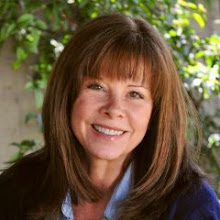January, 2009
My eyes pop awake at 5 a.m. and I have jitters in the tum. What, what is it...what is today...Wednesday...but what?
Oh yeah. January 14. I should be used to this. It's my fourth year and I'm not used to it....It's never without terror.
There are professions that call upon the skills of an actor. Lawyers, judges, priests, rabbis — and teachers. However, unlike the theatre, where an audience pays for the privilege, or a courthouse, where a jury is paid a stipend, or a religious setting, where worshipers willingly (I hope) congregate, in the classroom the teacher faces a reluctant audience. Day after day after day.
And here they came...racing, screaming, backpacks flying —
Ladies and gentlemen, welcome to opening day of The Shakespeare Club, 2009.
Lyndon, our ten-year-old stage manager, called out their names and they lined up in front of Room 39 for warm-ups.
"Big breath, raise your arms high up and — hello, sun — hands to the heart — I honor you — arms up — I'm an eagle, I fly — hang down like a rag dolly — and sweep the arms up, look to sky — hello, sun — hands to the heart — I honor you.
"Congratulations, you just did yoga."
Across the quad she approached. She loped toward us, making an entrance like Clint Eastwood in a spaghetti western. Tall, so tall, and blonde...and my help. Rachel.
As I am brunette and short, so Rachel is the opposite. First thought: Hermia and Helena, the best friends from "A Midsummer Night's Dream." Oh, I hope this works. I hope she stays.
So we grew together, Like to a double cherry, seeming parted, But yet an union in partition. A Midsummer Night's Dream Act III, Scene II
After a few more yoga poses and some vocal exercises, the kids followed Lyndon into the classroom to learn the Shakespeare Club mottos:
- We are The Shakespeare Club.
1. We help each other.
2. We share with each other.
3. We honor the works of William Shakespeare.
If can do Shakespeare, I can do anything!
And we were off into the world of the man, his Queen, his girlfriend —
"What? You mean he married that girl in 'Bride Wars'?"
"Yeah...her...you mean, Ms. Ryane, William Shakespeare married her?"
"No, that was a different Anne Hathaway. Remember, four hundred years ago...but I will tell you something interesting about today's Anne Hathaway. Guess, what play she's going to do this summer in New York City?"
" 'Princess Diaries 3'?"
"Nope, try again."
Blank stares.
"Okay, I'll give you a hint....You guys are going to do the same play on May 28."
Screams: " 'Twelfth Night'!"

We chat about the opening of "Twelfth Night" and what it might be like to be a sailor on a ship in a storm. I hand out their journals and freshly sharpened pencils.
"Why do you think I ask you to write in these journals? To picture what life might be like if you were a kid in Elizabethan England or a sailor on a ship? Why do I ask you to write about your dreams and wishes?"
"For our health?"
They kill me, they really do.
"Actors need to exercise their imaginations and writing helps us do that."
Celia raises her hand.
"Yes, Celia...in a big voice, ask me your question."
"Ms. Ryane, girls wouldn't speak in those days because if they couldn't go to school and couldn't learn to read — they wouldn't have words."
It's going to be a great year. The best ever.

Thy mother of mine this life tis horrible. I eat but raw fish and raw crab and biscuts. Thy miss you but are family be in great dept. Thy job be worst and tis I resiceve low pay.
Oh my now tis be now a terrible storm. My job be cabin boy tis now worst worst job in such a storm. Thy have one friend he be named Ace. I wish I could come home.
Yours with all my love
Samy






















































